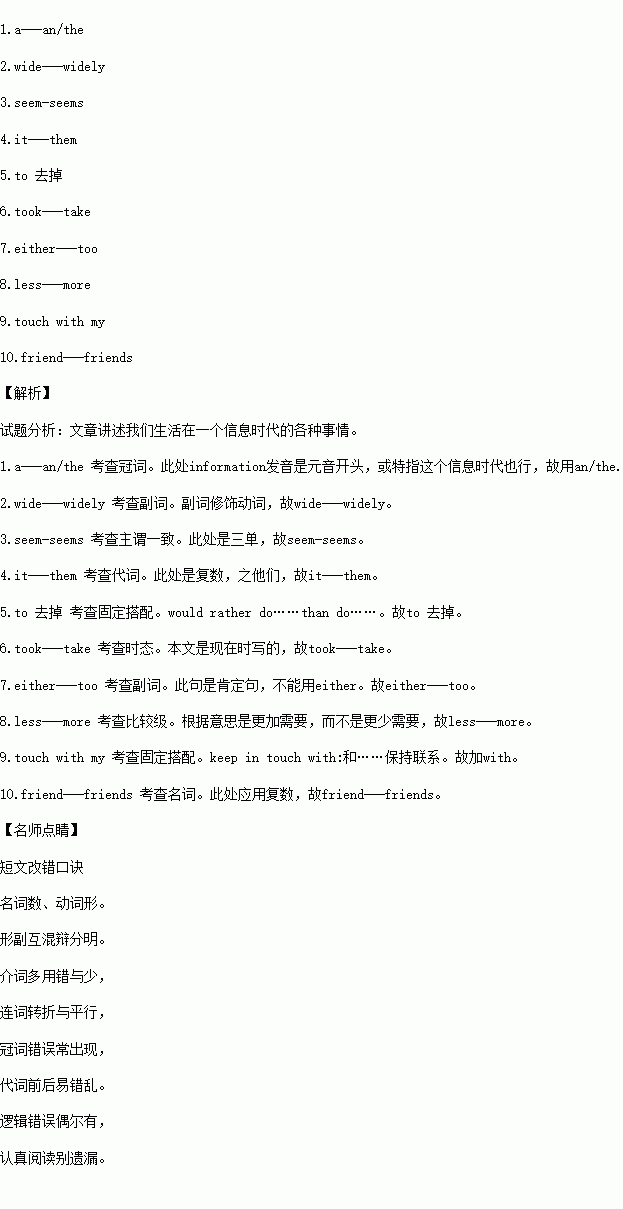题目内容
每句中只有一处错误。每处错误仅涉及一个单词的增加、删除或修改。
增加:在缺词处加一个漏字符号(∧),并在其下面写出该加的词。
删除:把多余的词用斜线(\)划掉。
修改:在错的词下划一横线,并在该词下面写出修改后的词。
We are now living in a information age, in which TV, cells and the Web are wide used. It seem that many people cannot enjoy themselves without it. However, if I were to give up one of them, I would rather turn off TV than to switch off my cell or cut off the Internet. I could do without TV because few shows took my fancy and there are too many commercials. Besides, most programs on TV are available elsewhere, either. As for cells and the Web, they are less necessary for me. I need a cell to keep in touch my friend and my family.
练习册系列答案
 冲刺100分1号卷系列答案
冲刺100分1号卷系列答案
相关题目

